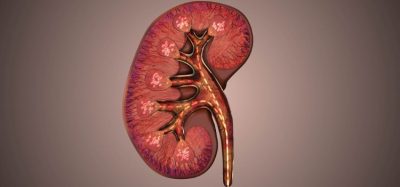Under the microscope: Using recombinant reagents for BET
Posted: 29 April 2024 | Associates Of Cape Cod Intl | No comments yet
Veronika Wills, Associate Director, Global Technical Services at Associates of Cape Cod, Inc (ACC), discusses in-depth, motivations and strategies surrounding the use of recombinant reagents for bacterial endotoxin testing.


Can you provide an overview of the developments around recombinant reagents for bacterial endotoxin testing (BET)?
Advancements in recombinant technologies have changed the landscape of BET, offering innovative alternatives to conventional LAL‑based assays. Innovative recombinant BET technologies such as PyroSmart NextGen® provide reliable sustainable alternatives to traditional BET reagents, while helping companies achieve their sustainability objectives.
The Limulus amebocyte lysate (LAL) assay has been the gold standard for endotoxin testing. It utilises the blood of the horseshoe crab, which contains a clotting factor that reacts specifically with endotoxins. However, the use of horseshoe crabs for LAL has been a point of increased concern, given the potential impact on the environment of utilising this natural resource.
Recombinant BET reagents can help address these concerns while also improving reliability and consistency.
How important are peer-reviewed publications on the comparability of recombinant BET reagents to LAL reagents?
Peer-reviewed publications are vital as they provide scientific evidence and validation of the performance and comparability of recombinant BET reagents to traditional LAL reagents. This data is important for establishing the reliability and accuracy of the new recombinant reagent and its use as an alternative to LAL-based assays.
In addition, regulatory bodies, such as the United States Pharmacopeia (USP), the European Pharmacopoeia (EP) and Japanese Pharmacopoeia (JP), require scientific evidence and data to support the use of alternative methods or reagents for endotoxin testing. Peer-reviewed publications can help serve as a basis for obtaining regulatory approvals or certifications.
Lastly, peer-reviewed publications can contribute to the acceptance and adoption of recombinant BET reagents such as Pyrosmart NextGen by pharmaceutical, medical device and other industries that require endotoxin testing. It provides confidence to stakeholders that the recombinant reagent is reliable and can deliver accurate results.
What strategies should be considered when looking to implement a BET recombinant reagent such as PyroSmart NextGen®?
Strategies for implementing a recombinant BET reagent such as Pyrosmart NextGen are not difficult. This is one of the benefits provided by a full cascade reagent or recombinant cascade reagent (rCR) such as PyroSmart NextGen. It allows for the same test methods as traditional kinetic BET testing, a compendial technique harmonised in all BET chapters: EP 2.6.14, USP <85> and JP 4.01.
This is certainly not all, but three main points to consider would be:
- Regulatory compliance: Familiarise yourself with the regulatory requirements for endotoxin testing in your specific industry (eg, pharmaceutical, medical devices, etc). Understand the guidelines provided by regulatory bodies like the United States Pharmacopeia or the European Pharmacopoeia to ensure that the recombinant BET reagent meets the necessary standards.
- Method validation: Perform method validation studies to demonstrate the equivalency or superiority of the recombinant cascade reagent compared to traditional LAL reagents, when required. This includes assessing sensitivity, specificity, linearity, accuracy and precision. Follow relevant regulatory guidelines and consult with experts in the field to design and execute the validation studies effectively.
- Training and education: Ensure that relevant personnel, including laboratory technicians and quality control personnel, receive appropriate training on the use and implementation of the recombinant BET reagent. Familiarise them with the specific procedures, protocols and requirements associated with the new reagent. Continuous education and training are crucial to maintain consistency and accuracy in the testing process.
Veronika Wills
Associate Director, Global Technical Services, Associates of Cape Cod, Inc.
Veronika is a subject matter expert with over 15 years of experience in endotoxin testing. She currently manages the global technical team at Associates of Cape Cod, Inc. (ACC) and is based at the company’s US Headquarters in Falmouth, Massachusetts. Veronika often provides expert sessions at global events focused on BET products and processes. Most recently she has been speaking on the topic of recombinant technology as it relates to BET in the industry, both in the US and abroad. Veronika is a key contributor to ACC’s sustainability initiatives and spokesperson on ACC’s related projects, products and services.
For further information, visit:
Issue
Related topics
Endotoxin, Endotoxin Detection, Environmental Monitoring, QA/QC, Regulation & Legislation, Sustainability









